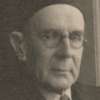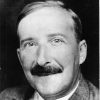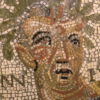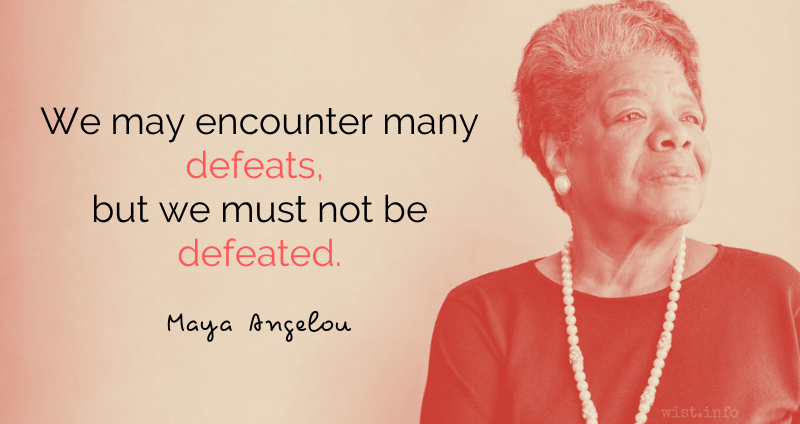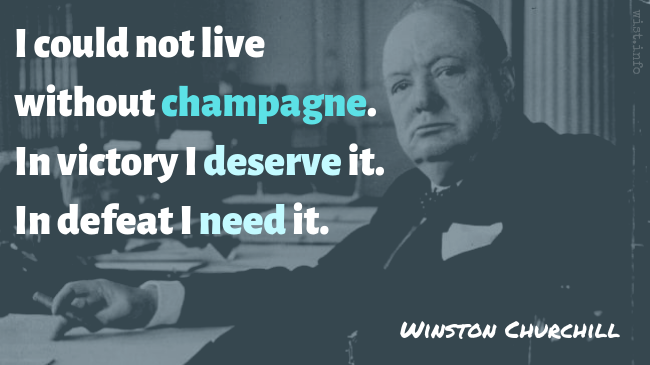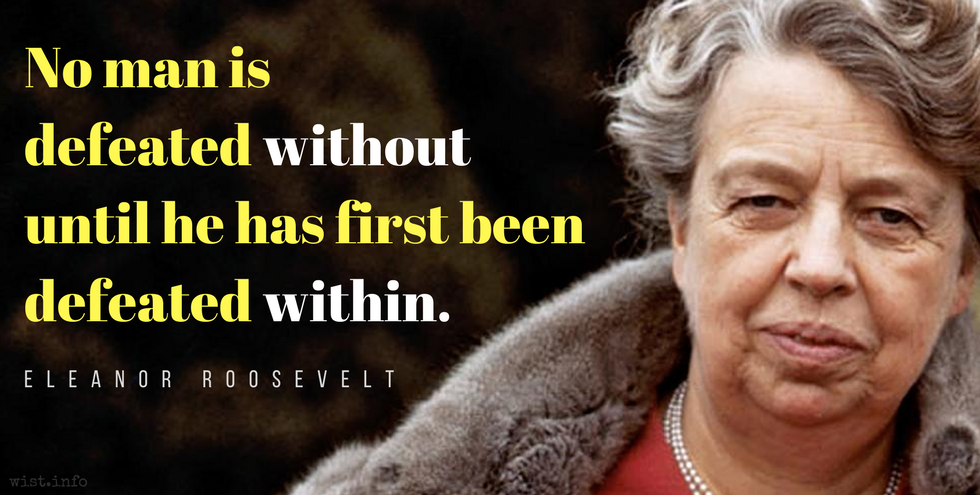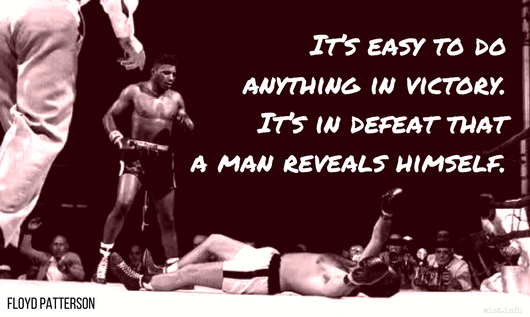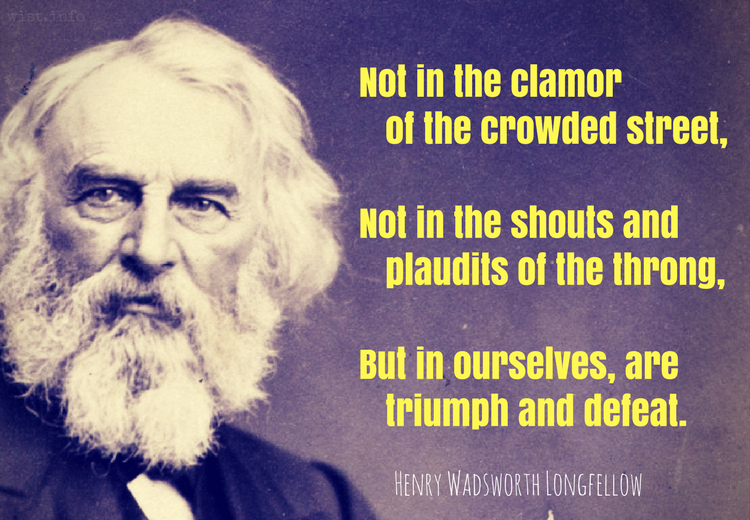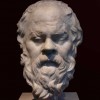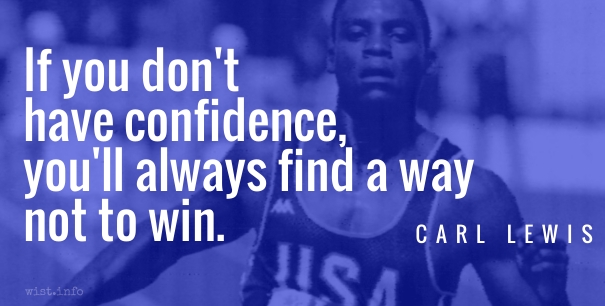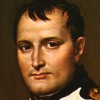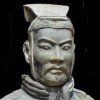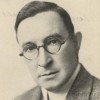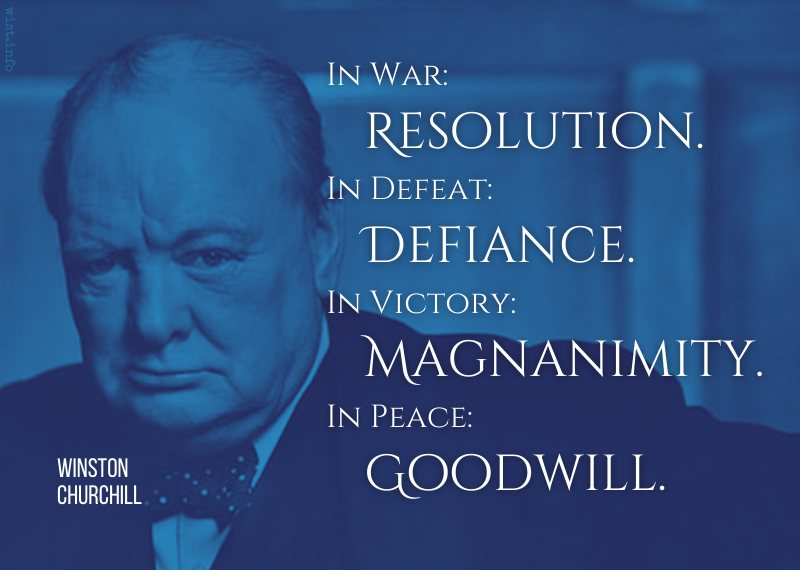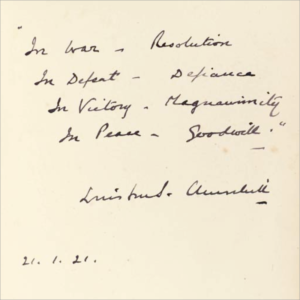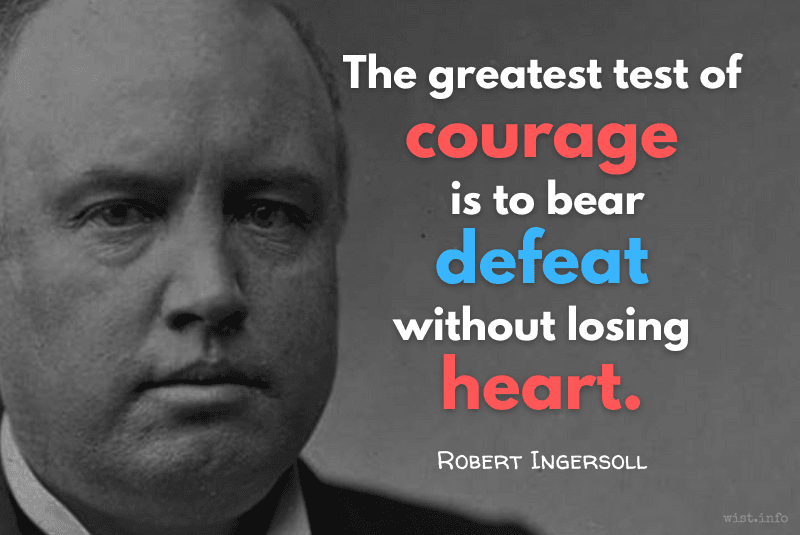He that falls obstinate in his courage — Si succiderit, de genu pugnat — he who, for any danger of imminent death, abates nothing of his assurance; who, dying, yet darts at his enemy a fierce and disdainful look, is overcome not by us, but by fortune; he is killed, not conquered.
The most valiant are sometimes the most unfortunate.
There are defeats more triumphant than victories.[Celuy qui tombe obstiné en son courage, si succiderit, de genu pugnat. Qui pour quelque danger de la mort voisine, ne relasche aucun point de son asseurance, qui regarde encores en rendant l’ame, son ennemy d’une veuë ferme & desdaigneuse, il est battu, non pas de nous, mais de la fortune: il est tué, non pas vaincu: les plus vaillans sont par fois les plus infortunez. Aussi y a-il des pertes triomphantes à l’envy des victoires.]
Michel de Montaigne (1533-1592) French essayist
Essays, Book 1, ch. 30 (1.30), “Of Cannibals [Des Cannibales]” (1578) [tr. Cotton/Hazlitt (1877)]
(Source)
The Latin phrase is from Seneca, De Provdentia [On Providence], 1.2. It means "If his legs fail him he fights on his knees."
Note this was inserted into this passage only in the final, 1595, edition, as was the final sentence (defeats greater than victories). The most-valiant/most-unfortunate sentence was an addition in the 1588 edition.
As examples of the concluding sentence, he goes on to compare great victories (Salamis, Plataea, Mycale, Sicily) to the "defeat" of Leonidas and his Spartans at Thermopylae.
Some editions use the 1588 sequence of chapters, not the 1595, and so identify this as ch. 31.
(Source (French)). Alternate translations:Hee that obstinately faileth in his courage, Si succiderit, de genu pugnat. He that in danger of imminent death, is no whit danted in his assurednesse; he that in yeelding up his ghost beholdeth his enemie with a scornefull and fierce looke, he is vanquished, not by us, but by fortune: he is slaine, but not conquered. The most valiant, are often the most unfortunate. So are there triumphant losses in envie of victories.
[tr. Florio (1603)]He that falls obstinate in his courage -- Si succiderit, de genu pugnat; -- he who, for any danger of imminent death, abates nothing of his assurance; who, dying, yet darts at his enemy a fierce and disdainful look, is overcome not by us, but by fortune; he is killed, not conquered; the most valiant are sometimes the most unfortunate. There are defeats more triumphant than victories.
[tr. Cotton (1686)]The man who falls obstinately courageous, si succiderit, de genu pugnat. He who does not flinch, be he in ever such imminent danger of death, and who, when giving up the ghost, looks his enemy in the face with a stern and disdainful countenance, he is conquered not by us, but by fortune; nay, he is killed, not conquered; the most valiant being sometimes the most unfortunate. There are actually some defeats which may compare even with victories for triumph.
[tr. Friswell (1868)]He who falls persistent in his will, si succiderit, de genu pugnat. He who abates no whit of his firmness and confidence for any danger form death not far away; he who, while yielding up his soul, still gazes at his foe with an unshrinking and disdainful eye -- he is beaten, not by us, but by fortune; he is killed, not conquered. The most valiant are sometimes the most unfortunate. So too there are defeats no less triumphant than victories.
[tr. Ives (1925)]He who falls obstinate in his courage, if he has fallen, he fights on his knees [Seneca]. He who relaxes none of his assurance, no matter how great the danger of imminent death; who, giving up his soul, still looks firmly and scornfully at his enemy -- he is beaten not by us, but by fortune; he is killed, not conquered.
The most valiant are sometimes the most unfortunate. Thus there are triumphant defeats that rival victories.
[tr. Frame (1943), 1.31]He who falls with a firm courage, "will, though fallen, fight on his knees." The man who yields no jot to his steadfastness for any threat of imminent death, who, as he yields up his soul, still gazes on his enemy with a firm and disdainful eye, is beaten not by us but by fortune; he is killed but he is not vanquished. The most valiant are sometimes the most unfortunate.
There are defeats, therefore, that are as splendid as victories.
[tr. Cohen (1958)]The man who is struck down but whose mind remains steadfast, "si succiderit, de genu pugnat," the man who relaxes none of his mental assurance when threatened with imminent death and who faces his enemy with inflexible scorn as he gives up the ghost is beaten by Fortune not by us: he is slain but not vanquished. Sometimes it is the bravest who may prove most unlucky. So there are triumphant defeats rivalling victories.
[tr. Screech (1987), 1.31]The man who falls, persevering in his courage, si succiderit, de genu pugnat. A man who does not relax any of his assurance despite the imminence of death -- who still gazes firmly and disdainfully at his enemy as he gives up the ghost -- is defeated not by us but by fortune'; he has been slain, not vanquished. Sometimes the most valiant are the most ill-fortuned. Thus there are triumphant defeats, rivaling victories.
[tr. Atkinson/Sices (2012)]
Quotations about:
defeat
Note not all quotations have been tagged, so Search may find additional quotes on this topic.
You know, it don’t take near as good a man to be a Candidate as it does to hold the office. That’s why we wisely defeat more than we elect.
Nothing is more detestable than disgrace, nothing more shameful than slavery. We have been born for glory and freedom — let us either hold on to these things or die with dignity.
[Nihil est detestabilius dedecore, nihil foedius servitute. Ad decus et ad libertatem nati sumus; aut haec teneamus aut cum dignitate moriamur.]
Marcus Tullius Cicero (106-43 BC) Roman orator, statesman, philosopher
Philippics [Philippicae; Antonian Orations], No. 3, ch. 14 / sec. 36 (3.14/3.36) (44-12-20 BC) [tr. @sentantiq (2019)]
(Source)
(Source (Latin)). Other translations:Nothing is more detestable than disgrace, nothing fouler than servitude. It is to glory and to liberty we were born; let us either hold fast to these or die with dignity.
[tr. Yonge (1903)]There is nothing more detestable than disgrace; nothing more shameful than slavery. We have been born to glory and to liberty; let us either preserve them or die with dignity.
[tr. Ker (Loeb) (1926)]Nothing is more abominable than disgrace, nothing is uglier than slavery. We were born for honor and freedom: let us either retain them or die with dignity.
[tr. Manuwald (2007)]
In retrospect, our triumphs could as easily have happened to someone else; but our defeats are uniquely our own.
Mignon McLaughlin (1913-1983) American journalist and author
The Neurotic’s Notebook, ch. 9 (1963)
(Source)
Any coward can fight a battle when he’s sure of winning; but give me the man who has pluck to fight when he’s sure of losing. That’s my way, sir; and there are many victories worse than a defeat.
George Eliot (1819-1880) English novelist [pseud. of Mary Ann Evans]
Scenes of Clerical Life, “Janet’s Repentance,” ch. 6 (1857)
(Source)
Life is truly known only to those who suffer, lose, endure adversity, and stumble from defeat to defeat.
Ryszard Kapuściński (1932-2007) Polish journalist, photographer, poet, author
“A Warsaw Diary,” Granta Magazine, No. 15 (1985 Spring)
(Source)
A war which is destroying men as they have never been destroyed before, from which at the best the nations will emerge permanently degraded in their stock, poorer in physique, duller in intelligence, weaker in will than they went in, this war is to be protracted until the whole manhood of Europe is decimated, in order — in order to what? Let us ask in detail.
In order, we are told, that the Germans may ‘feel they are beaten.’ And then? They will be good in future? They will admit they were wrong? They will lick the hand that chastised them? Who believes it? The more completely they are beaten, the more obstinately they will be set on recovery. When France was beaten to the dust in 1870, did she repent for having provoked the war? On the contrary, she gathered up her forces for revenge. And Germany will do the same.G. Lowes Dickinson (1862-1932) British political scientist and philosopher [Goldsworthy "Goldie" Lowes Dickinson]
“The War and the Way Out: A Further Consideration,” sec. 2, Atlantic Monthly (Apr 1915)
(Source)
They never fail who die
In a great cause.George Gordon, Lord Byron (1788-1824) English poet
Marino Faliero, Doge of Venice, Act 2, sc. 2 [Israel Bertuccio] (1821)
(Source)
The purpose of life is to be defeated by greater and greater things.
Rainer Maria Rilke (1875-1963) German poet
“The Beholder [Der Schauende]”, The Book of Images [Buch der Bilder], Second Book, Part 2 (1902) (paraphrase)
This looks to be a paraphrase from a couplet in the poem (also known as "The Man Watching"):Sein Wachstum ist: der Teifbesiegte
von immer Größerem zu sein.
[Source]
Which translates variously as:His growth is: to be the deeply defeated
by ever greater things.
[tr. Snow (1991)]This is how he grows: by being defeated, decisively,
by constantly greater beings.
[tr. Bly]His growth is this: to be defeated
by ever greater forces.
[tr. Barrows and Macy]
Only ambition is fired by the coincidences of success and easy accomplishment but nothing is quite as splendidly uplifting to the heart as the defeat of a human being who battles against the invincible superiority of fate. This is always the most grandiose of all tragedies, one sometimes created by a dramatist but created thousands of times by life.
If we could learn to look, instead of gawking,
We’d see the horror in the heart of farce.
If only we could act, instead of talking,
We wouldn’t always end up on our arse.
This is the thing that nearly had us mastered;
Don’t yet rejoice in his defeat, you men!
Although the world has stood up and stopped the bastard,
The bitch that bore him is in heat again.[Ihr aber lernet, wie man sieht statt stiert
Und handelt, statt zu reden noch und noch.
So was hätt einmal fast die Welt regiert!
Die Völker wurden seiner Herr, jedoch
Dass keiner uns zu früh da triumphiert —
Der Schoß ist fruchtbar noch, aus dem das kroch.]Bertolt Brecht (1898-1956) German poet, playwright, director, dramaturgist
The Resistible Rise of Arturo Ui [Der Aufhaltsame Aufstieg des Arturo Ui], Epilogue (1941) [tr. Tabori (1963)]
(Source)
Original German. The end of the play, after the violent death of the gangster Ui, modeled after the rise of Hitler. It was not performed until 1958 (German), 1960 (English). The above is the translation first used on Broadway (1963).
The last three lines are in the credits of the Sam Peckinpah (dir.) film Cross of Iron (1977).
Alternate translations:Therefore we learn how to see and not to gape.
To act instead of talking all day long.
The world was almost won by such an ape!
The nations put him where his kind belong.
But don't rejoice too soon at your escape --
The womb he crawled from is still going strong.
[tr. Manheim (1981)]
The last four lines of Manheim's version were quoted by a vampire in the final episode of the first series (UK) of Being Human (2008).Learn how to face the facts you tried to shun.
And how to act, where once you idly slept.
That's how the world was going to be run!
The nations duly mastered it, except
(In case you think the battle has been won) --
The womb is fertile still from which that crept.
[tr. Willett]
That was similar to the quatrain Willett translated (1998) from the portion of that that Brecht used in his War Primer [Kriegsfibel] (1947):That’s how the world was going to be run!
The other nations mastered him, except
(In case you think the battle has been won) --
The womb is fertile still from which that crept.Something like that almost governed the world.
Yet the people mastered him. But
I wish you'd hold your triumph:
The womb is fertile still from which that crawled.
[Another Kriegsfibel trans.]Let none of us exult too soon: the womb is fertile still from which this monster crawled.
[Notes from Brecht in the notes for José Limón's unfinished memoir]Do not applaud quite so soon, for the womb is fertile still from where this one crawled.
[Source]
A nationalist is one who thinks solely, or mainly, in terms of competitive prestige. He may be a positive or a negative nationalist — that is, he may use his mental energy either in boosting or in denigrating — but at any rate his thoughts always turn on victories, defeats, triumphs and humiliations. He sees history, especially contemporary history, as the endless rise and decline of great power units, and every event that happens seems to him a demonstration that his own side is on the upgrade and some hated rival is on the downgrade.
George Orwell (1903-1950) English journalist, essayist, writer [pseud. of Eric Arthur Blair]
“Notes on Nationalism” (May 1945)
(Source)
One of the first things that a young person must internalize, deep down in the blood and bones, is the understanding that he may encounter many defeats, but he must not be defeated. If life teaches us anything, it may be that it’s even necessary to suffer some defeats. When we look at a diamond, a diamond is the result of extreme pressure. Less pressure, it is crystal; less than that, it is coal; and less than that, it is fossilized leaves or just plain dirt. It is necessary, therefore, to be tough enough to bite the bullet as it is in fact shot into one’s mouth, to bite it and stop it before it tears a hole in one’s throat.
Maya Angelou (1928-2014) American poet, memoirist, activist [b. Marguerite Ann Johnson]
“Maya Angelou Raps,” interview by Jeffrey M. Elliot, Sepia (Oct 1977)
(Source)
For I have promised to do the battle to the uttermost, by faith of my body, while me lasteth the life, and therefore I had liefer to die with honour than to live with shame; and if it were possible for me to die an hundred times, I had liefer to die oft than yield me to thee; for though I lack weapon, I shall lack no worship, and if thou slay me weaponless that shall be thy shame.”
He who has conquered is not conqueror
Unless the conquered one confesses it.[Qui vincit non est victor nisi victus fatetur.]
There is, I hope, a thesis in my work: we may encounter many defeats, but we must not be defeated.
Maya Angelou (1928-2014) American poet, memoirist, activist [b. Marguerite Ann Johnson]
“The Art of Fiction,” Paris Review, #116, Interview with George Plimpton (1990)
(Source)
I could not live without Champagne. In victory I deserve it. In defeat I need it.
Winston Churchill (1874-1965) British statesman and author
Comment to Odette Pol Roger (1946)
Frequently misattributed to Napoleon Bonaparte ("In victory you deserve champagne. In defeat you need it."); no citation of the quote has been fond prior to 1946. See here for more discussion.
No man is defeated without until he has first been defeated within.
Eleanor Roosevelt (1884-1962) First Lady of the US (1933-45), politician, diplomat, activist
You Learn by Living, ch. 10 (1960)
(Source)
It’s easy to do anything in victory. It’s in defeat that a man reveals himself.
Floyd Patterson (1935-2006) American professional boxer
(Attributed)
(Source)
Quoted in Gay Talese, Fame and Obscurity: Portraits (1970).
Violence as a way of achieving racial justice is both impractical and immoral. It is impractical because it is a descending spiral ending in destruction for all. The old law of an eye for an eye leaves everybody blind. It is immoral because it seeks to humiliate the opponent rather than win his understanding; it seeks to annihilate rather than to convert. Violence is immoral because it thrives on hatred rather than love. It destroys community and makes brotherhood impossible. It leaves society in monologue rather than dialogue. Violence ends by defeating itself. It creates bitterness in the survivors and brutality in the destroyers.
Martin Luther King, Jr. (1929-1968) American clergyman, civil rights leader, social activist, preacher
Stride Toward Freedom, ch. 11 “Where Do We Go from Here?” (1958)
(Source)
Not in the clamor of the crowded street,
Not in the shouts and plaudits of the throng,
But in ourselves, are triumph and defeat.Henry Wadsworth Longfellow (1807-1882) American poet
“The Poets,” Atlantic Monthly (Jul 1878)
(Source)
When the debate is lost, slander becomes the tool of the loser.
Socrates (c.470-399 BC) Greek philosopher
(Spurious)
Of recent coinage. See here for more discussion.
The timidity of the child or the savage is entirely reasonable; they are alarmed at this world, because this world is a very alarming place. They dislike being alone because it is verily and indeed an awful idea to be alone. Barbarians fear the unknown for the same reason that Agnostics worship it — because it is a fact. Fairy tales, then, are not responsible for producing in children fear, or any of the shapes of fear; fairy tales do not give the child the idea of the evil or the ugly; that is in the child already, because it is in the world already. Fairy tales do not give the child his first idea of bogey. What fairy tales give the child is his first clear idea of the possible defeat of bogey. The baby has known the dragon intimately ever since he had an imagination. What the fairy tale provides for him is a St. George to kill the dragon.
From the sublime to the ridiculous is but a step.
Napoleon Bonaparte (1769-1821) French emperor, military leader
Comment to the Abbé du Pradt (10 Dec 1812)
(Source)
During the retreat from Moscow, a repeated comment during a discussion with one of his ambassadors. Quoted by Archibald Alison, History of Europe from the Commencement of the French Revolution in 1789, to the Restoration of the Bourbons in 1815, Vol. 16, ch. 73 (1842). See also Paine.
Alt. trans.:
- "There is but one step from the sublime to the ridiculous."
- "There is only one step from the sublime to the ridiculous."
- "From the sublime to the ridiculous there is but a step."
For to win one hundred victories in one hundred battles is not the acme of skill. To subdue the enemy without fighting is the acme of skill.
Sun-Tzu (fl. 6th C. AD) Chinese general and philosopher [a.k.a. Sun Wu]
The Art of War, ch. 3
Alt. trans.:
- "Hence to fight and conquer in all your battles is not supreme excellence; supreme excellence consists in breaking the enemy's resistance without fighting"
- "The best victory is when the opponent surrenders of its own accord before there are any actual hostilities .... It is best to win without fighting."
Autobiography is only to be trusted when it reveals something disgraceful. A man who gives a good account of himself is probably lying, since any life when viewed from the inside is simply a series of defeats.
George Orwell (1903-1950) English journalist, essayist, writer [pseud. of Eric Arthur Blair]
Essay (1944-06-01), “Benefit of Clergy: Some Notes on Salvador Dali,” Dickens, Dali & Others (1946), opening words
(Source)
The essay was originally printed in Saturday Book magazine, but the publisher decided it had to be "suppressed on grounds of obscenity" and had the essay physically cut out of each printed copy.
The passage is referring to, among others, Dali's The Secret Life of Salvador Dali (1942).
When you have prayed for victory you have prayed for many unmentioned results which follow victory — must follow it, cannot help but follow it. Upon the listening spirit of God the Father fell also the unspoken part of the prayer. He commandeth me to put it into words. Listen!
“O Lord our Father, our young patriots, idols of our hearts, go forth to battle — be Thou near them! With them — in spirit — we also go forth from the sweet peace of our beloved firesides to smite the foe. O Lord our God, help us to tear their soldiers to bloody shreds with our shells; help us to cover their smiling fields with the pale forms of their patriot dead; help us to drown the thunder of the guns with the shrieks of their wounded, writhing in pain; help us to lay waste their humble homes with a hurricane of fire; help us to wring the hearts of their unoffending widows with unavailing grief; help us to turn them out roofless with their little children to wander unfriended the wastes of their desolated land in rags and hunger and thirst, sports of the sun flames of summer and the icy winds of winter, broken in spirit, worn with travail, imploring Thee for the refuge of the grave and denied it — for our sakes who adore Thee, Lord, blast their hopes, blight their lives, protract their bitter pilgrimage, make heavy their steps, water their way with their tears, stain the white snow with the blood of their wounded feet! We ask it, in the spirit of love, of Him Who is the Source of Love, and Who is the ever-faithful refuge and friend of all that are sore beset and seek His aid with humble and contrite hearts. Amen.”
As always, victory finds a hundred fathers, but defeat is an orphan.
[Come sempre, la victoria trova cento padri, e nessuno vuole riconoscere l’insuccesso.]
Galeazzo Ciano (1903-1944) Italian diplomat [Gian Galeazzo Ciano, 2nd Count of Cortellazzo and Buccari]
Diario, 9 Sep 1942 (1946)
(Source)
Alternate translation: "As always, victory will have a hundred fathers, but defeat will never be acknowledged by anyone at all."
An "old saying" quoted by John Kennedy after the Bay of Pigs fiasco. Most likely gleaned from the movie The Desert Fox (1951), where Field Marshal von Rundstedt tells Erwin Rommel “You must never forget this, my dear fellow: Victory has a hundred fathers. Defeat is an orphan.” The movie was based on the book Desmond Young, Rommel, the Desert Fox (1951), which provides a citation for the quotation.
History has demonstrated that the most notable winners usually encountered heartbreaking obstacles before they triumphed. They won because they refused to become discouraged by their defeats.
Bertie Charles (B. C.) Forbes (1880-1954) American publisher
Forbes, Issue No. 1 (Sep 1917)
(Source)
In War: Resolution.
In Defeat: Defiance.
In Victory: Magnanimity.
In Peace: Goodwill.Winston Churchill (1874-1965) British statesman and author
The Second World War, Vol. 1: The Gathering Storm, Epigram, “Moral of the Work,” (1948)
(Source)
The most famous use of the quote, though it can be found as far back as 21 Jan 1921 in Churchill's own hand, and Edward Marsh, his private secretary, suggested it dated back to just after WW I, as a possible war memorial.More information here: CHURCHILL, Sir Winston Spencer (1874-1965). Autograph sentiment signed and dated, 21 January 1921, 'In War - Resolution , In Defeat - Defiance , In Victory - Magnanimity , In Peace - Goodwill', one page, 4°, in a commonplace book further inscribed and signed 'To Nell from Winston S. Churchill 21.1.21', and with one other inscription, contemporary marbled calf, front cover panelled in gilt and blind. Provenance: Roy A. Dalton; and by descent..
Pride goeth before destruction, and an haughty spirit before a fall.
The Bible (The Old Testament) (14th - 2nd C BC) Judeo-Christian sacred scripture [Tanakh, Hebrew Bible], incl. the Apocrypha (Deuterocanonicals)
Proverbs 16:18 [KJV (1611)]
(Source)
Source of the common elided version, "Pride goeth before a fall."
Alternate translations:Pride goes before destruction, a haughty spirit before a fall.
[JB (1966), NJB (1985)]Pride leads to destruction, and arrogance to downfall.
[GNT (1976)]Pride comes before disaster,
and arrogance before a fall.
[CEB (2011)]Pride goes before destruction
and a haughty spirit before a fall.
[NRSV (2021 ed.)]Pride goes before ruin,
Arrogance, before failure.
[RJPS (2023 ed.)]
It is not the critic who counts, nor the man who points out how the strong stumbled or where the doer of the deed could have done better. The credit belongs to the man who is actually in the arena; whose face is marred by dust and sweat and blood; who strives valiantly; who errs and comes up short again and again. Who knows the great enthusiasms, the great devotions, and spends himself in a worthy cause; who at the best knows in the end the triumphs of high achievement; and who at the worst, if he fails, at least fails while daring greatly; so that his place shall never be with those cold and timid souls who know neither victory or defeat.
Theodore Roosevelt (1858–1919) American politician, statesman, conservationist, writer, US President (1901–1909)
Speech (1910-04-23), “Citizenship in a Republic [The Man in the Arena],” Sorbonne, Paris
(Source)
Never let your head hang down. Never give up and sit down and grieve. Find another way. And don’t pray when it rains if you don’t pray when the sun shines.
Satchel Paige (1906-1982) American baseball player [Leroy Robert Paige]
Quoted in “Hal Boyle Says –” syndicated AP column, New York Post (1959-10-04)
Boyle was a Pulitzer-prize-winning journalist working for the AP. This is usually cited to the New York Post appearance. Other examples include the Oswego Palladium-Times (1959-10-02), and the Key West Citizen (1959-10-07).
The greatest test of courage is to bear defeat without losing heart.
Robert Green Ingersoll (1833-1899) American lawyer, freethinker, orator
Speech (1876-07-04), “Centennial Oration [The Declaration of Independence],” Peoria, Illinois
(Source)







